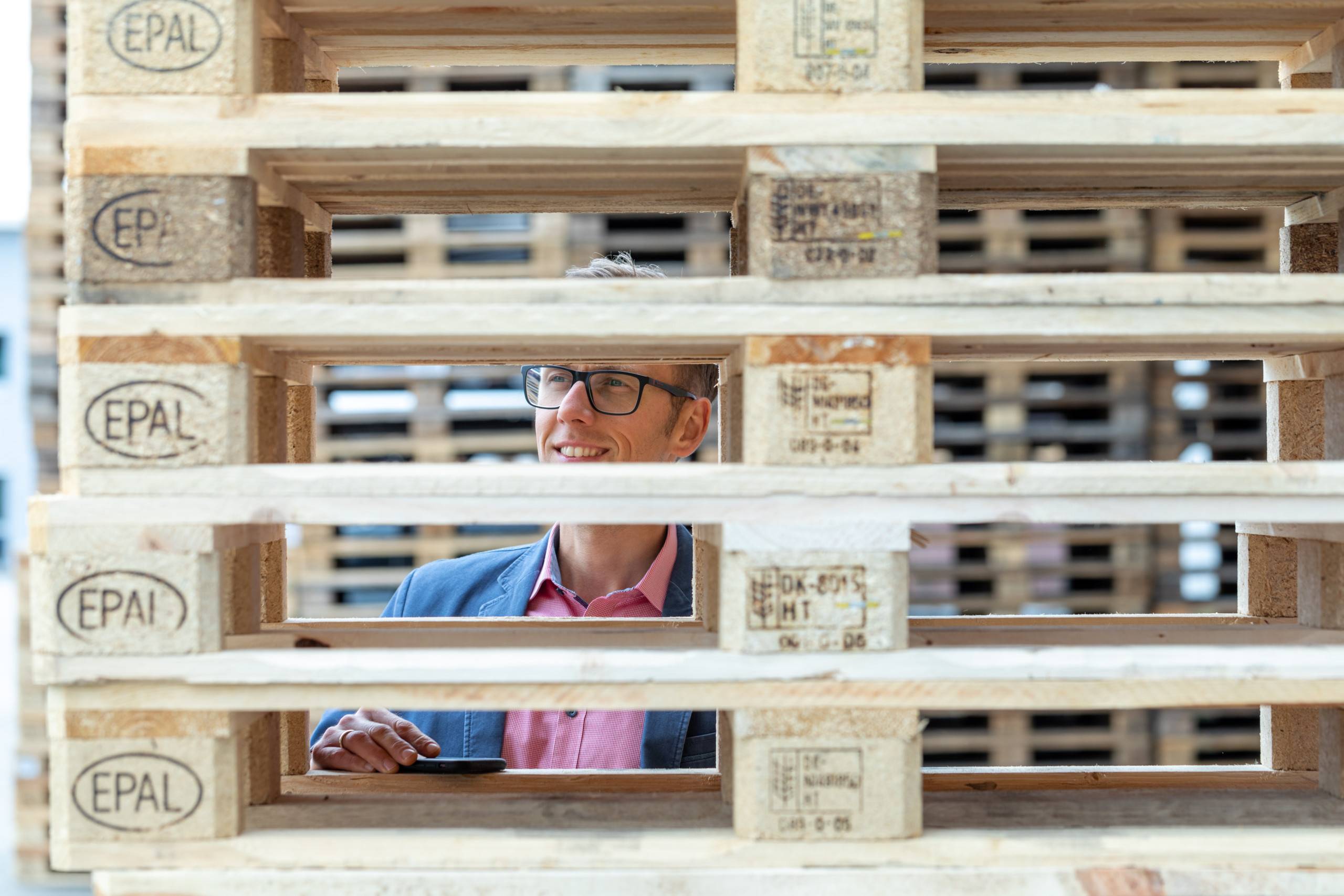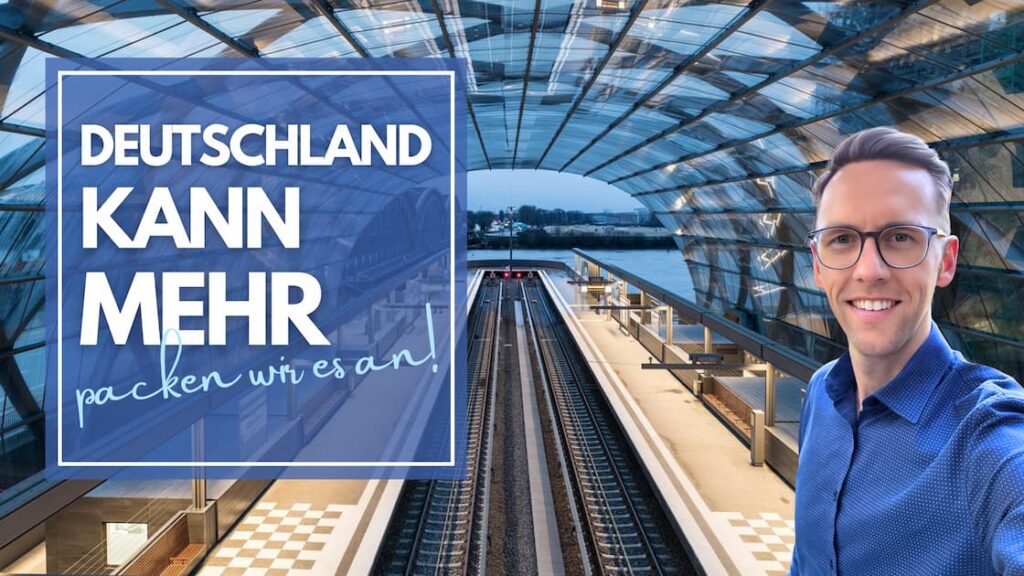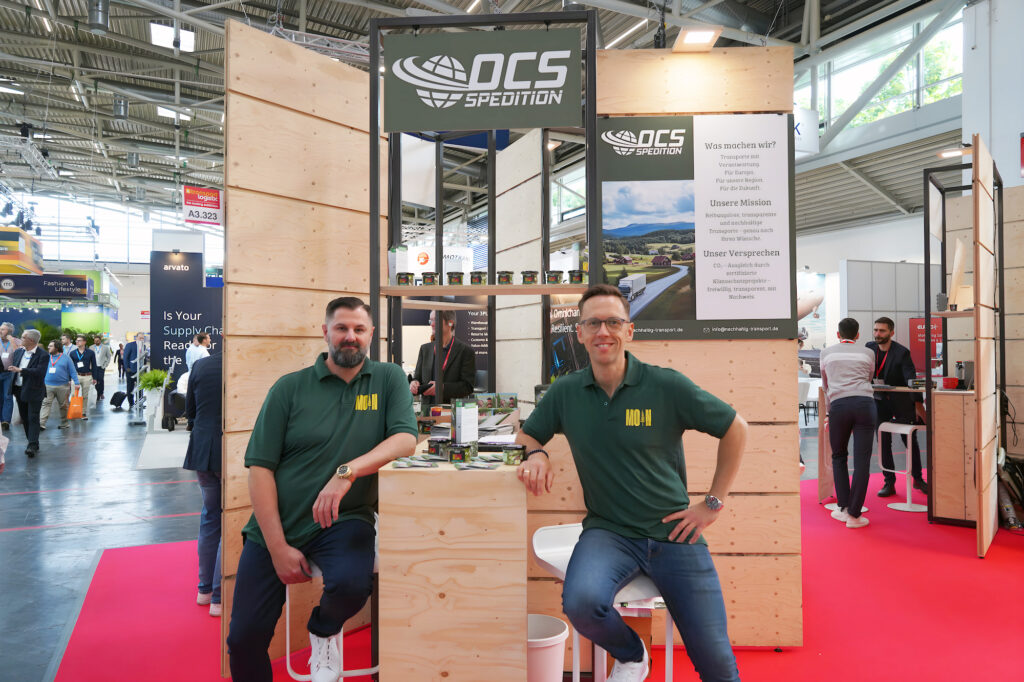Pallets were a true “breakthrough” invention in logistics in the 1930s. Suddenly it became possible to combine and transport compact shipments, even in large formats. Since pallets have always been used as stable reusable packaging anywhere in the world, they can be exchanged during loading and unloading. But this exchange is not as easy as it sounds.
The challenges of exchanging pallets are part of the daily routine at OCS Spedition. For example, a customer came to us some time ago with a “pallet challenge”. Larger shipments from Poland and the Czech Republic to Germany were planned for its customers, consisting of large discounters and retail chains. The requirement: exchanging the pallets on site. In principle, this was nothing new for commercially available Euro pallets, even if it always entails risks for the transport company.
Now the challenge was to deliver the goods on Düsseldorf pallets. The supplier can guarantee this, but would either pass the pallets on to our customer at a fixed price or demand them back as normal in the exchange process. An unsolvable problem?
What are Düsseldorf pallets?
The pallet known as the Düsseldorf pallet meets all the requirements that trade and industry place on transport packaging. The only difference to the standard Euro pallet: It is smaller, but with dimensions of 80 x 60 cm it also looks much more manageable. Another advantage when handling in the warehouse: The DD pallet, like a Euro pallet, can be operated by all standard-sized pallet trucks and forklifts not only from two but from four sides. When used in direct exchange, Düsseldorf pallets are even more cost-effective to use than Euro pallets.
The challenges when exchanging pallets
However, the possibility of exchanging pallets does not only have advantages. If, after unloading, it is discovered that the pallets delivered were in significantly better condition than those intended for collection, this is usually very annoying. Although there are various standards that attempt to regulate these unpleasant conversations, reality repeatedly confirms that a reasonable pallet condition almost always depends on too many factors that cannot be influenced. Logistics thrives on speed - and in the logistical processes, inventory maintenance of good and exchangeable pallets unfortunately plays a subordinate role; the additional costs for poor quality pallets are often paid by the freight forwarder used. The Truck Law have published some regulations, but compliance is usually difficult. However, various software solutions promise simple processing and cost savings, but still have to be proven in reality.
The solution for pallet exchange
Of course, the OCS team looked for the optimal solution for the example mentioned at the beginning. However, in order to make this business possible for our customer, the well-known “thinking outside the box” was required. The final implementation took place by setting up and maintaining an exchange account in order to deliver the pallets back in larger batches with fully loaded trucks. The pallet accounts could thus be recorded in the system through booking and regularly reconciled, and the recipients could gradually exchange the Düsseldorf pallets after receiving the goods.
One more pallet in circulation
But that was the next challenge for the dispatchers. The new format of the DD pallets could not be easily integrated into the other loading on Euro pallets. And especially when it comes to every single parking or storage space, there is no space left on loading areas. The solution: Using a network consisting of various service providers for pallet handling and small shipping warehouses that were in the immediate vicinity of the recipients. The unloaded pallets could therefore also be recorded in the pallet management system, so that both the customers and the OCS scheduling department always had an immediate overview of the various stocks.
And the pallets in the return line?
As soon as the stocks in a region could be consolidated into a complete load, a truck was dispatched to deliver back to the supplier in order to balance the stocks there again. The advantage: This made it possible to ensure that only perfect exchange pallets were returned to the supplier. During storage, the partners checked the inventory and repaired or disposed of defective pallets. This gave the customer the opportunity to meet the requirements of trading companies in Germany and at the same time reduce the costs of pallet handling to a minimum.
Benefit from the OCS experience!
The employees of OCS Spedition do not know any problems, only how to solve challenges - thanks to our strong network, we have been able to provide many additional services for our customers who were faced with similar challenges. Are you interested in further information? Please feel free to contact us!






